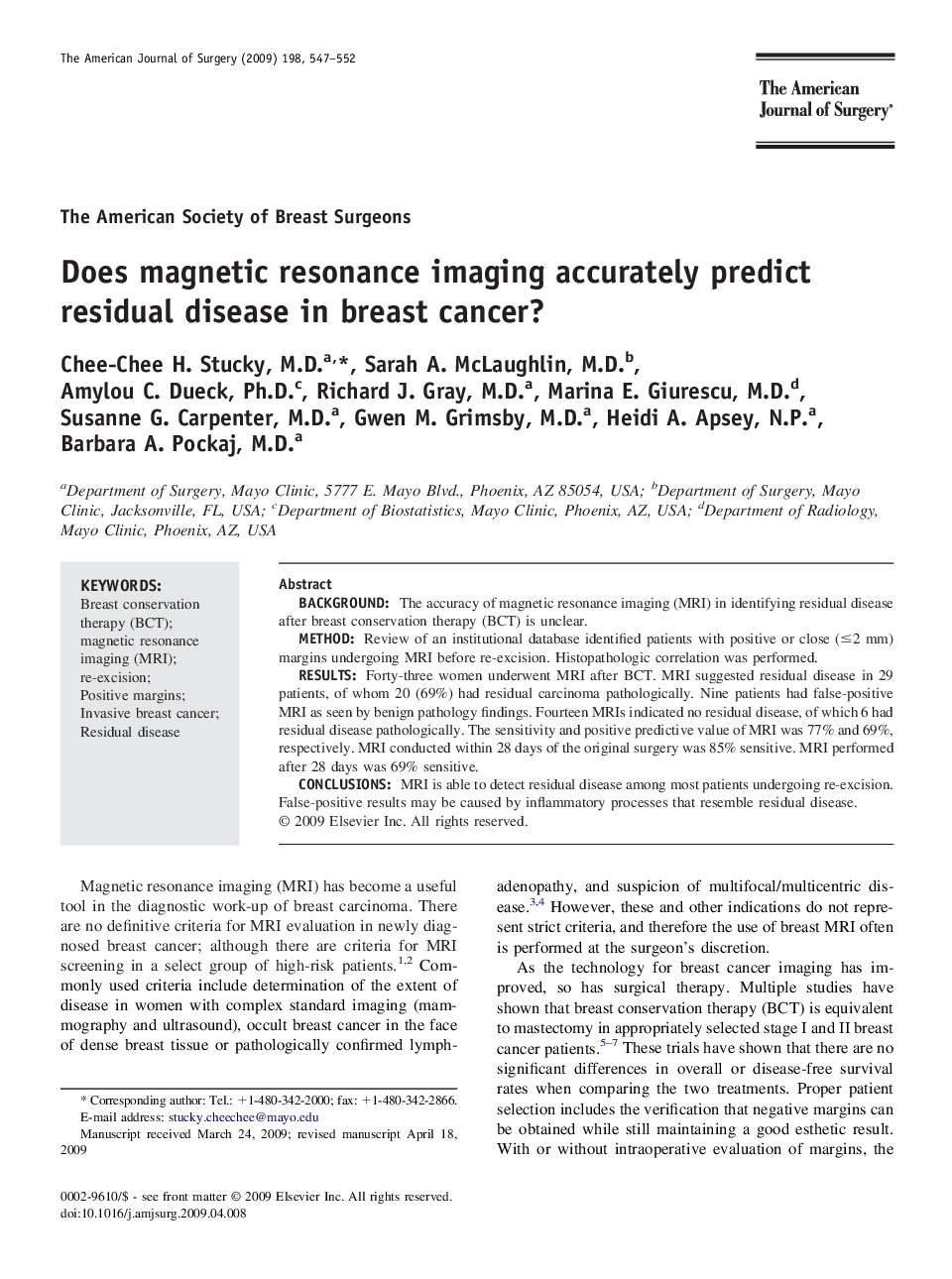| Article ID | Journal | Published Year | Pages | File Type |
|---|---|---|---|---|
| 4280797 | The American Journal of Surgery | 2009 | 6 Pages |
BackgroundThe accuracy of magnetic resonance imaging (MRI) in identifying residual disease after breast conservation therapy (BCT) is unclear.MethodReview of an institutional database identified patients with positive or close (≤2 mm) margins undergoing MRI before re-excision. Histopathologic correlation was performed.ResultsForty-three women underwent MRI after BCT. MRI suggested residual disease in 29 patients, of whom 20 (69%) had residual carcinoma pathologically. Nine patients had false-positive MRI as seen by benign pathology findings. Fourteen MRIs indicated no residual disease, of which 6 had residual disease pathologically. The sensitivity and positive predictive value of MRI was 77% and 69%, respectively. MRI conducted within 28 days of the original surgery was 85% sensitive. MRI performed after 28 days was 69% sensitive.ConclusionsMRI is able to detect residual disease among most patients undergoing re-excision. False-positive results may be caused by inflammatory processes that resemble residual disease.
